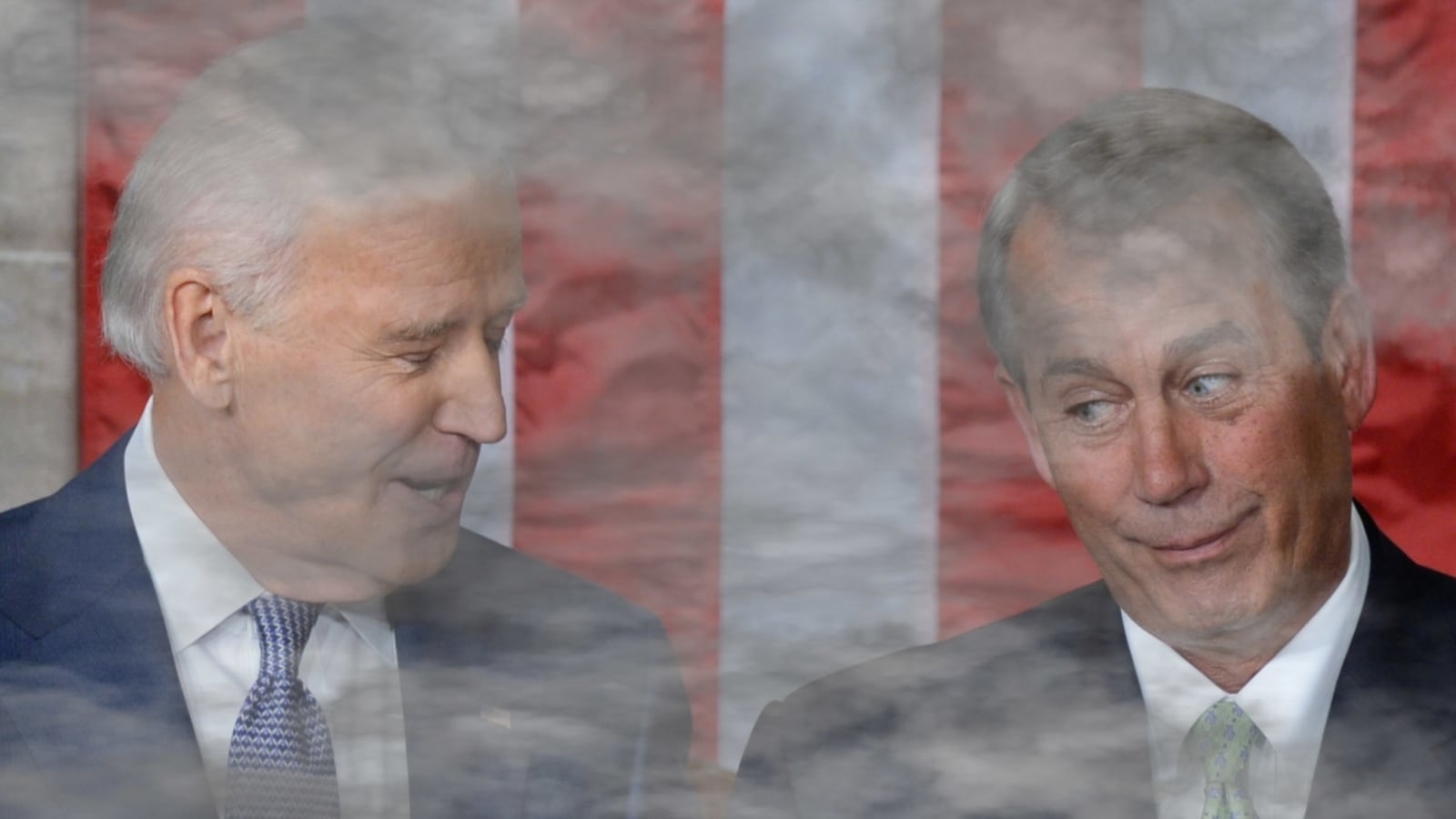The District of Columbia has voted overwhelmingly to legalize the possession and use of marijuana in the district, prompting an interesting question: Is Congress allowed to get stoned?
The short answer is—yes. Initiative 71 will allow D.C. residents above the age of 21 to possess up to 2 ounces of marijuana, cultivate up to six cannabis plants at home, and transfer, not sell, up to 1 ounce. Assuming that members of Congress who live in D.C. are adults, they, too, will be permitted to get stoned at their leisure.
But don’t start dreaming of hot-boxing the Capitol. “This initiative changes D.C. law,” said Bill Piper, the director of national affairs for the Drug Policy Alliance, speaking before the initiative was passed. “Marijuana possession would still be illegal on federal property.” Until cannabis is removed from the Schedule I substance list, it will not be allowed on federal property. So, members of Congress can light up at work—but they can if they live in the district. “Possessing marijuana in their own home would be legal under D.C. law, as it would be for anybody else,” says Piper.
The initiative does not include any additional provisions related to Congress. The subsection that addresses the professional workplace states that agencies, officers, and employers will not be required to allow their employees to use marijuana off the job. In other words, companies will still be allowed to enact their drug-testing policies. Fortunately for members of Congress, their workplace doesn’t have one—or at least, not one that’s in effect. According to a stipulation in the House’s official rules and regulations from 1997, the speaker of the House can, in consultation with the House minority leader, order random drug tests of a member. But, as current Minority Leader Nancy Pelosi pointed out in the wake of Rep. Trey Radel’s cocaine catastrophe, the current speaker of the House, John Boehner, doesn’t order them. Unless the bronzed Ohioan starts getting drug-test happy, we may soon have a more legitimate reason for calling Congress dazed and confused.
It’s that potential of pot to impair cognition that has convinced politicians like Rep. Andy Harris (R-MD) that legalizing marijuana in D.C. would be catastrophic. “It’s potent stuff. It’s poison to a teenager’s brain,” Harris told The Washington Post. “I saw personally, firsthand, what drug use and drug abuse is doing to an underprivileged population.” Harris declined to comment to The Daily Beast on the implications of Initiative 71 for members of Congress.
Mason Tvert, director of communications for the Marijuana Policy Project and one of the leaders behind Colorado’s 64th Amendment, says it’s high time Congress got involved. “Marijuana is objectively less harmful than alcohol, which is a substance you’ll find at virtually any D.C. political event or campaign fundraiser,” he says. “It’s less harmful to the body, less addictive, and it’s less likely to contribute to violent and reckless behavior. If members of Congress would prefer to make the safer choice to use marijuana when relaxing or socializing, why would we want to stop them?” Tvert says that if Congress can adopt resolutions in support of the alcohol industry and Obama can brew beer in the White House, than federal officials should be allowed to use cannabis. “It’s time to end the hypocrisy,” he says.
For Dr. Malik Burnett, a former surgeon who is co-founder of the D.C. Cannabis Campaign, the question of whether Congress can get stoned is emblematic of the larger scope of Initiative 71. “Being able to legalize [it] in the backyard of Congress [will] make it crystal clear for Congress members that the sky doesn’t fall when you legalize marijuana,” he says. Burnett, who helped lead 400 volunteers in collecting the 57,000 signatures that propelled Initiative 71 to the ballot, laughs at the concept of Congress lighting up in the Capitol building.
Part of his humor springs from the very real belief that he and many others share that a fair number of lawmakers smoke marijuana already. In a now famous clip, Rep. Jared Polis (D-CO) was asked what percentage of Congress smokes. His answer: about 5 percent. “Remember the demographic [of Congress]. I think the average age is 60,” he told the National Cannabis Industry Association. “I don’t know what percentage of 60-year-olds use marijuana, but it’s probably similar in Congress.”
If the spike in baby boomers smoking pot is any indication, Initiative 71 will bring congressional smokers out in swaths.






